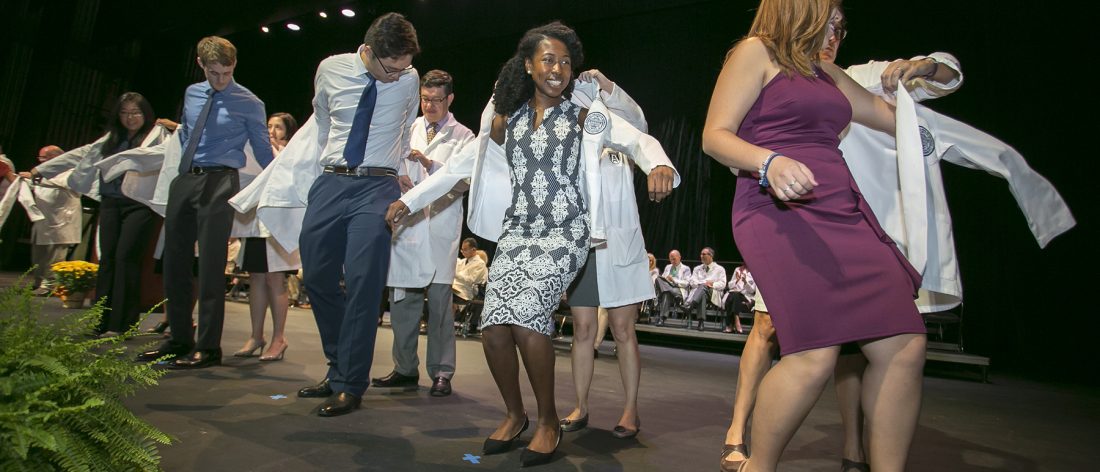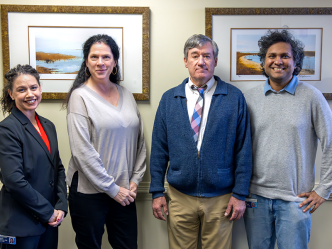Faculty at the Medical College of Georgia at Augusta University will officially welcome their 230 newest colleagues, the Class of 2023, into the practice of medicine at the school’s annual White Coat Ceremony on Saturday, Oct. 19. The ceremony begins at 2 p.m. at the Bell Auditorium, 712 Telfair St.
The White Coat Ceremony was established nationwide by the Arnold P. Gold Foundation in 1993 as a rite of passage for first-year medical students. The most important elements of the ceremony are the presentation of the students’ first white coats and the self-written oath they take acknowledging their role as caregivers. MCG held its first White Coat Ceremony in 1996.
The guest speaker for this year’s ceremony is Dr. Brenda Fitzgerald, executive board chair of Resilient Georgia, whose mission is to lead a statewide public/private coalition and create an integrated behavioral health system that serves people from birth to age 26. Resilient Georgia is working to identify the best ways to reach young people in Georgia, increase resiliency, and make all Georgians aware of adverse childhood events, trauma-informed care and the long-term effects of toxic stress.
Fitzgerald also was the 17th director of the Centers for Disease Control and Prevention and administrator of the Agency for Toxic Substances and Disease Registry. She also served as the commissioner of the Georgia Department of Public Health and state health officer from 2011-17.
The Medical College of Georgia is the state’s only public medical school. Its total enrollment of 920 students makes it the 9th largest in the country and the largest in Georgia, and the state’s leading provider of physicians, particularly those who choose to practice primary care. In 2019, 164 graduates, or 68% of MCG’s senior class, matched with primary care residency programs.
About 50% of MCG’s graduates remain in the state to practice and one in five physicians in Georgia graduate from or complete their residency at MCG.
The medical school’s statewide impact is also evident in its educational model — with its main campus anchored in Augusta, a second four-year campus in Athens in partnership with the University of Georgia, and three clinical campuses in Albany, Rome and Savannah/Brunswick. Campuses in every corner of the state and partnerships with physicians across Georgia ensure that MCG students experience the full spectrum of medicine, from tertiary/quaternary care hospitals to small-town solo practices.
 Augusta University
Augusta University




